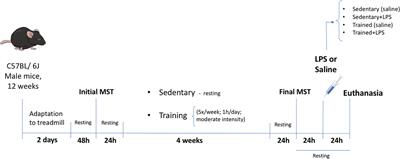ORIGINAL RESEARCH
Published on 23 Apr 2021
Reverse Remodeling in Human Heart Failure after Cardiac Resynchronization Therapy Is Associated With Reduced RHO-Kinase Activation

doi 10.3389/fphar.2021.565724
- 2,614 views
- 3 citations
7,844
Total downloads
28k
Total views and downloads
Select the journal/section where you want your idea to be submitted:
ORIGINAL RESEARCH
Published on 23 Apr 2021

ORIGINAL RESEARCH
Published on 15 Feb 2021

ORIGINAL RESEARCH
Published on 24 Aug 2020

REVIEW
Published on 03 Aug 2020

MINI REVIEW
Published on 29 Jul 2020

ORIGINAL RESEARCH
Published on 17 Jul 2020


Frontiers in Physiology